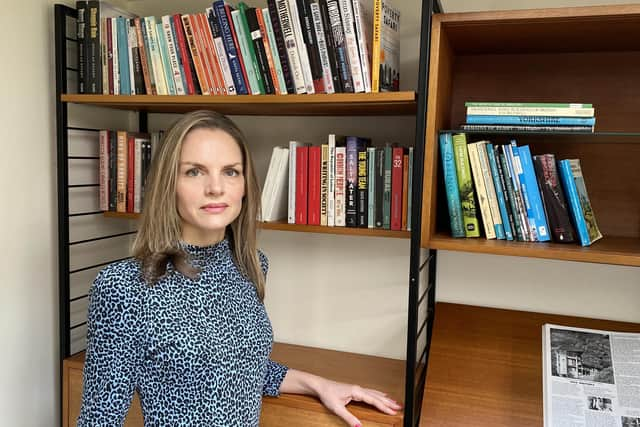Working-class people must have role models in publishing, says Katherine Greenwood
Over the last decade, sectors ranging from engineering to technology have devoted much energy to supporting projects which aim to ensure people from a wide range of backgrounds occupy leadership positions. There is one industry, however, where the door seems to be firmly closed to most people from working class backgrounds. Data published in 2019, concluded that 58 per cent of people working in publishing roles were from ‘privileged’ backgrounds, while just 13 per cent had come from working-class origins.
Katherine Greenwood, Visiting Lecturer at York St John University, who has worked in the literary industries for 20 years, as an editor, literary scout, and festival organiser, would love to see this change. As part of a decade-long partnership between New Writing North and Northumbria University, she is researching contemporary writing by and about the working classes, with a particular focus on the Common People anthology published in 2019. The research argues for a literature that is ‘common’: meaning ordinary, rather than the preserve of a privileged few, but also shared equally by all.
Advertisement
Hide AdAdvertisement
Hide Ad“It is no secret that the industry is overwhelmingly white, middle class and based in London and the south east, although very recently there have been some green shoots of change,’’ she said.


“In contemporary Britain, where social class remains a powerful force, the challenges of integrating the working class into a literary industry and culture which has long been unrepresentative are considerable.”
Research has shown that problems of class diversity in the creative industries are long-standing and the situation in publishing is particularly dire.
“Part of the problem of under-representation is misrepresentation,’’ she said. “In literature, ‘working-class writing’ is too often assumed to be grim and gritty, largely northern, urban stories of toil and hardship.”
Advertisement
Hide AdAdvertisement
Hide AdThe anthology and a wider body of contemporary working-class writing question the association of the working classes with urban, industrial environments. Stories from rural working-class people who have long been invisible are slowly emerging, she said.
A 2022 report from the Authors’ Licensing and Collecting Society revealed that the median income of full-time professional authors has fallen by more than 60 per cent in real terms, adjusting for inflation, over the past 16 years, bringing median earnings to below the minimum wage level. The report also showed that the top 10 per cent of authors earn about 47 per cent of all author income.
Ms Greenwood added: “Diversity on the page is intimately connected to diversity in terms of the workforce, because if the people in commissioning and senior roles in publishing are not diverse, that is going to affect which stories get heard.”
She believes initiatives such the MA publishing courses at York St John University and Northumbria University in Newcastle, can play a role in expanding the pipeline of talent. The York St John students, for example, work on projects with local publishers, such as Valley Press in Scarborough.
Advertisement
Hide AdAdvertisement
Hide AdShe added: “It’s about retaining creative talent in the regions, creating a sustainable model for change. The political and economic geography of power in Britain is reflected in and perpetuated by a literary industry which is centred on London and the south east. The literary industries have a part to play in the regeneration of northern regions. Hachette, one of the ‘big five’ publishing houses, has opened regional offices across the UK and HarperNorth, which has a remit to commission work from the North (‘books from the North for the world’), was launched in 2020.
“The publishers that make up the Northern Fiction Alliance, a body of independent publishers across the North, are also doing really exciting things.” The alliance was founded in 2016 by Comma Press in Manchester and included three other publishers. Now it has more than 20. It includes And Other Stories in Sheffield, Bluemoose in Hebden Bridge, and Route in Pontefract. And Other Stories recently re-issued the work of Ann Quin, a working-class writer who was part of the British experimental movement of the 1960s.
"It’s hard to imagine her work getting through the commissioning systems of a larger publishing house,’’ she said. “There’s an entrepreneurial spirit in these smaller publishers who face less bureaucracy and can be more flexible and creative, alongside the growth of non-traditional publishing models like crowdfunding. Many of the anthologies which have provided a platform for marginalised voices have been crowdfunded.
“The crowdfunding publishing model is important because it inverts the principle of risk attached to the traditional publishing model. Traditionally the publisher needs a significant financial outlay to publish a book. With crowdfunding the book is financed by pledges from readers before it is produced.
Advertisement
Hide AdAdvertisement
Hide Ad“It supports writing by marginalised groups in society, because it eliminates the risk which has been one barrier to achieving diversity in terms of representation on the page. Organisations like New Writing North do a huge amount to support writers from a diverse range of backgrounds."
May 1 2024 is the fifth anniversary of the completion of the Common People research study, which she hopes will act as a catalyst for change.
“There are important initiatives happening, such as Common People, and a Writing Chance which is a collaboration involving Michael Sheen, the actor and philanthropist, to address the issue. It is incredibly important that there are visible role models in literature and publishing for people from working-class backgrounds.”
Comment Guidelines
National World encourages reader discussion on our stories. User feedback, insights and back-and-forth exchanges add a rich layer of context to reporting. Please review our Community Guidelines before commenting.